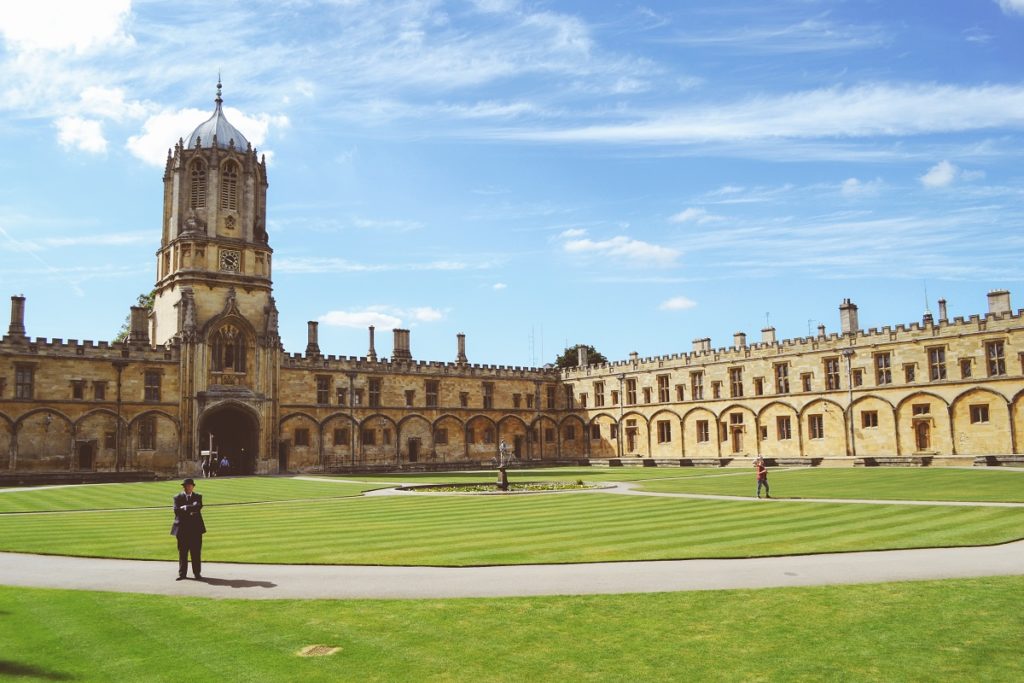This strange question was posed by hip-hop artist Hopsin in his 2015 single “Fly”. Meant to be a challenge towards the idea that going to college makes-or-breaks one’s future (and tries to assuage kids fears about whether or not college is harder than high school), it sounds ridiculous at first, but at the end of the day, it is a valid question, if not a little misleading. Let’s learn more about college, what it is, what the oldest colleges are, and who exactly invented college:
What is a College?
In the strictest sense, a college is pretty much any kind of educational institution that offers tertiary or vocational education to people. A college can be stand-alone, or a constituent institution of a larger group of colleges (often referred to as a University. More on that later). Colleges usually grant bachelor’s degrees in both the arts and the sciences.
What’s the Difference Between a College and a University?

Although they’re often used interchangeably, colleges and universities actually have key differences that set them apart. Usually, colleges are often smaller (in terms of physical size, scope of study, and enrolment, among other things) institutions that usually only offer undergraduate degrees like Bachelor’s Degrees. Even smaller colleges, like community colleges and junior colleges, usually offer prospective students courses that lead to two-year degrees like an Associate’s Degrees.
On the other hand, universities are institutions that offer undergraduate, graduate, and even post-graduate, degrees like Bachelor’s degrees, Master’s degrees, and Ph.D’s. Most universities will also usually have a constituent institution that offers degrees in professional fields like Law or Medicine. Universities are also often much larger than colleges, and can, in fact, be composed of multiple colleges, either in the same campus or in satellite locations. Because of their size, universities usually offer a much more diverse selection of courses and curricula than colleges, and offers more opportunities to its students for inter-subject learning.
The World’s Oldest Colleges and Universities
Colleges have been around for a really long time; in fact, some colleges and universities are so ancient, they’re older than most sovereign states in existence today. What’s fascinating about some of the world’s oldest schools is that a majority of them are still operating, taking in students, and granting degrees. Of course, their campus might have undergone some modern facelifts, and their rules, regulations, and curricula might have updated as well, but in general, these oldest colleges and universities have retained their heritage throughout the centuries:
University of Cambridge
Established in 1209, the University of Cambridge was actually founded by a group of scholars from the much older University of Oxford after a dispute with other members of the latter institution’s faculty. This started the heated, but often friendly, rivalry between the two schools, and while both schools share a wide number of traditions, the two schools retain very distinct personalities that make them unique.
University of Paris
Established between 1250 and 1160, the University of Paris, commonly known as La Sorbonne, is France’s crowning educational jewel. It’s arguably one of the first established universities in continental Europe, and has consistently operated since its founding (except for a 97-year break between 1793 and 1896 because of the French Revolution).
Unlike most schools, however, the University of Paris isn’t confined to a single campus; rather, the University of Paris is actually scattered across the entire city of Paris, with school officials establishing 13 autonomous colleges back in 1970 to make administration much simpler. Today, each of the 13 colleges that make up the University of Paris all maintain distinct traditions, but remain united under the Sorbonne heritage.
University of Salamanca
Established in 1134 and given a Royal Charter in 1218, the University of Salamanca is Spain’s oldest continuing institution of higher learning. The university has seen various historical events, including Christopher Columbus’ presentation of his Indies expedition back in the late 15th century.
The main campus located West of Madrid, but the University has 9 other satellite campuses across Spain, and has around 30,000 students in total.
University of Oxford
Cambridge’s main rival, the University of Oxford was founded sometime between the late 10th and mid 11th century. Some sources establish one of the first schools to operate under the Oxford banner to be as far back as 1096, with many experts agreeing that the school was in full swing by 1167.
It’s one of the most prestigious universities in the world, with its alumni list containing some extremely influential people throughout history, like saints, nobel laureates and winners, British Prime Ministers, heads of states, and of course, Stephen Hawking.
University of Bologna
Established in 1088, the University of Bologna is Europe’s oldest university. Since 1088, the University of Bologna has continued operations, seeing no interruption in over a thousand years. It was famed for being the premier institution in all of Europe to get a doctorate; however, in modern times, the University of Bologna has started offering programs in the undergraduate levels as well.
So, Who Invented College?
But, according to Hopsin, ‘did the man who invented college go to college’? Well, here’s the kicker:
College wasn’t ‘invented’ by a man. It was ‘invented’ by a woman.
The oldest university on earth is considered to be the University of al-Qarawiyyin in Fez, Morocco. Founded in 859 AD, the school started out as a madrasa, a type of educational institution popular in the Arabic world. Its founder was a scholar called Fatima al-Fihri, and while she didn’t exactly go to college, she was an expert in Islamic jurisprudence and the Hadith.
The University of al-Qarawiyyin is, arguably, the institution that invented college, and Fatima al-Fihri invented college in the modern sense.
